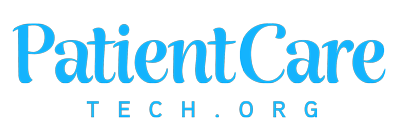
Role of Patient Care Technicians in Administering Medications
In the healthcare industry, ensuring patients take their medications correctly and consistently is critical for effective treatment and recovery. Patient Care Technicians (PCTs) play a pivotal role in this process, often being responsible for organizing medication schedules, reminding patients to take their medications, and sometimes administering injections or other treatments. This blog explores the various responsibilities of PCTs in administering medications and highlights the importance of their role in patient care.
Organizing Medication Schedules
One of the primary responsibilities of PCTs in medication administration is organizing and maintaining accurate medication schedules. This involves:
- Creating Medication Plans: PCTs collaborate with nurses and pharmacists to create comprehensive medication plans tailored to each patient’s needs. These plans include dosage, timing, and any special instructions related to food or activity restrictions.
- Maintaining Accurate Records: PCTs ensure that all medication records are up-to-date and accurate. This includes documenting any changes in medication, dosages, and schedules as prescribed by healthcare providers.
- Labeling and Organizing Medications: PCTs label and organize medications in a way that makes it easy for patients to follow their medication regimen. This often involves using pill organizers or creating detailed charts.
Reminding Patients to Take Medications
For many patients, especially those with complex medication regimens or cognitive impairments, remembering to take medications on time can be challenging. PCTs play a crucial role in this aspect by:
- Providing Timely Reminders: PCTs remind patients to take their medications at the prescribed times. These reminders can be verbal or through scheduled alerts and notifications.
- Educating Patients: PCTs educate patients about the importance of adhering to their medication schedule. They explain how the medications work, potential side effects, and the consequences of missed doses.
- Monitoring Compliance: PCTs keep track of patients’ adherence to their medication schedules and report any issues or concerns to the healthcare team. They work closely with patients to address any barriers to compliance.
Administering Injections and Other Treatments
In some healthcare settings, PCTs are trained to administer injections and other treatments under the supervision of a nurse or physician. This responsibility includes:
- Administering Injections: PCTs are often responsible for giving patients their prescribed injections, such as insulin or other injectable medications. This requires proper training in injection techniques, sterile procedures, and patient safety.
- Assisting with Specialized Treatments: PCTs may assist with other treatments, such as wound care, nebulizer treatments, or dialysis. This requires specialized training and adherence to strict protocols.
- Monitoring for Adverse Reactions: After administering medications or treatments, PCTs monitor patients for any adverse reactions or side effects. They are trained to recognize and respond to any complications promptly.
The Importance of Medication Management
Effective medication management is crucial for patient health and recovery. PCTs play a vital role in ensuring that patients adhere to their medication regimens, which can prevent complications, reduce hospital readmissions, and improve overall health outcomes. The responsibilities of PCTs in medication management include:
- Reducing Medication Errors: PCTs help minimize the risk of medication errors by ensuring that patients take the correct medications at the right times and in the right dosages.
- Enhancing Patient Safety: By closely monitoring patients for side effects and adverse reactions, PCTs contribute to a safer healthcare environment.
- Improving Health Outcomes: Consistent medication adherence leads to better management of chronic conditions, faster recovery from acute illnesses, and improved overall health.
Patient Care Technicians play a critical role in administering medications and ensuring that patients adhere to their prescribed treatment plans. Their responsibilities in organizing medication schedules, reminding patients, and administering treatments are essential for patient safety and health. If you are passionate about helping others and interested in a rewarding healthcare career, becoming a PCT offers the opportunity to make a significant impact on patient care. Embrace the chance to contribute to improved health outcomes and support patients in their journey to recovery.


